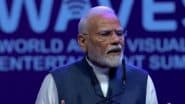Kathmandu, May 1 (AP) The metal gates are padlocked now at the Parichaya Samaj centre that advocates for LGBTQ+ rights and supports the queer community in Nepal. A sign at the entry says they are unable to help anymore. The staff and volunteers are gone.
Ever since US President Donald Trump's administration began dismantling the US Agency for International Development, which was responsible for humanitarian aid, most of the help centres for Nepal's LGBTQ+ community have been closed due to lack of funds. Thousands of people have been left without support.
It is an unprecedented setback to the Himalayan nation's growing queer community, which has made significant progress in recent years.
“It is a big crisis," said Sunil Babu Pant, an openly gay former parliamentarian and a leading LGBTQ+ campaigner. “When the community needs counselling or support, it is absent. People are going back to the closet again."
In the past few years, Nepal's LGBTQ+ community made rapid advancements in securing their rights. The nation became one of the first in Asia to allow same sex-sex marriage. The constitution adopted in 2015 explicitly stated there can be no discrimination on the basis of sexual orientation.
The US was among the biggest donors for the LGBTQ+ rights campaign.
Over the years, USAID and others stepped in and partnered with help centres to support initiatives like HIV prevention and care and safe-sex counselling. The US funds were vital for running the centres and clinics that helped with distributing free condoms, screenings and follow-up treatment for people with HIV. Now the USAID office in Nepal is closed.
With most of that funding gone, those gains are at risk.
Babu Dumi Rai, who worked at a help centre in Kathmandu that has closed, warned that the aid cuts could lead to more HIV infections.
“In our community people are hesitant to buy condoms, and many of them are not even aware they need to use a condom or even how to properly use them," Rai said. “With all these projects and services shuttered, there is now a very big risk of the HIV infections to be on the rise.”
It is estimated that between 15,000 and 20,000 people with HIV in Nepal are from the LGBTQ+ community, said Dinesh Chaudhury, who has been working with the help centers.
Chaudhury said the centres also provided medical help to the community, and now people are struggling to find alternatives. Government hospitals and general medical facilities have some resources, but some in the LGBTQ+ community have said they feel uncomfortable with the way they are treated there.
“It is uncertain where they can go to get help in the coming days,” Chaudhury said. “I have so many people come with questions on where they can go, but I have no answer.”
Sex workers feel more vulnerable
Simple Lama, a transgender sex worker, said access to medical help or items like condoms and lubricants is now far more challenging.
“It was easier and safer to go to the centres and clinics to get medical help and consultations,” Lama said. “But now it is difficult to go to big hospitals, and when we go to the regular hospitals, people look at us differently, treat us differently.”
Sex work is illegal in Nepal, and sex workers are routinely harassed and chased by authorities. Transgender sex workers are generally more tolerated by the police because of the lobbying by LGBTQ+ rights groups pushing to stop harassment of their members.
Now the ranks of sex workers is growing as members of the LGBTQ+ community who had been working at the now-closed help centres look for new ways to survive.
“Quite a few of them have started doing sex works,” said Pant, the former parliamentarian. “Because of the scarcity of jobs and opportunities, a lot of trans and third genders are surviving as sex workers.” (AP)
(This is an unedited and auto-generated story from Syndicated News feed, LatestLY Staff may not have modified or edited the content body)













 Quickly
Quickly














